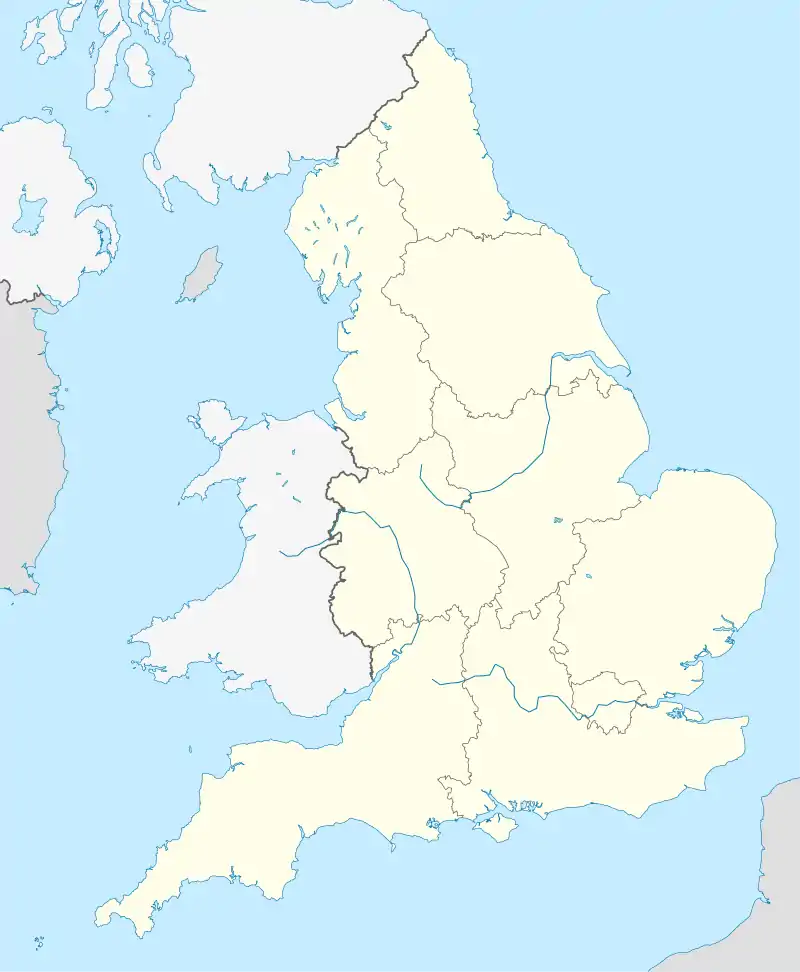
Geographic clustering of the suffixes:
 -caster
-caster  -cester
-cester  -chester
-chester  -cetter/-xeter
-cetter/-xeter
The English place-name Chester, and the suffixes -chester, -caster and -cester (old -ceaster), are commonly indications that the place is the site of a Roman castrum, meaning a military camp or fort (cf. Welsh caer), but it can also apply to the site of a pre-historic fort.[1] Names ending in -cester are nearly always reduced to -ster when spoken, the exception being "Cirencester", which (commonly nowadays) is pronounced in full.[2] However, names ending in -ster are not necessarily related, as the Irish province of Leinster, which comes from the tribe Laigin + Irish tír or Old Norse staðr, both meaning "land" or "territory". The pronunciation of names ending in -chester or -caster is regular.
A
B
C
- Caister-on-Sea
- Caistor
- Caistor St Edmund
- Casterton, Cumbria
- Casterton, Great, Rutland
- Casterton, Little, Rutland
- Castor, Cambridgeshire
- Chester
- Cheshire, Chester-shire
- Chester, Little, Derby
- Chesterfield
- Chesterford, Great
- Chesterford, Little
- Chester-le-Street
- Chesterton (disambiguation)
- Chesterwood
- Chichester
- Cirencester
- Colchester
D
- Doncaster
- Dorchester
- Dorset, Dor-chester-seat
- Dorchester-on-Thames, Oxfordshire
E
F
G
H
I
K
L
- Lancaster
- Lancashire, Lune-caster-shire
- Lanchester
- Leicester
M
P
R
S
T
U
W
Notes
- ↑ Ekwall, E. (1960). The Concise Oxford Dictionary of English Place-Names (4th ed.). OUP. p. 92. ISBN 0-19-869103-3.
- ↑ Wells, John C. (2000). Longman Pronunciation Dictionary. 2nd ed. Longman. ISBN 0-582-36468-X.
This article is issued from Wikipedia. The text is licensed under Creative Commons - Attribution - Sharealike. Additional terms may apply for the media files.